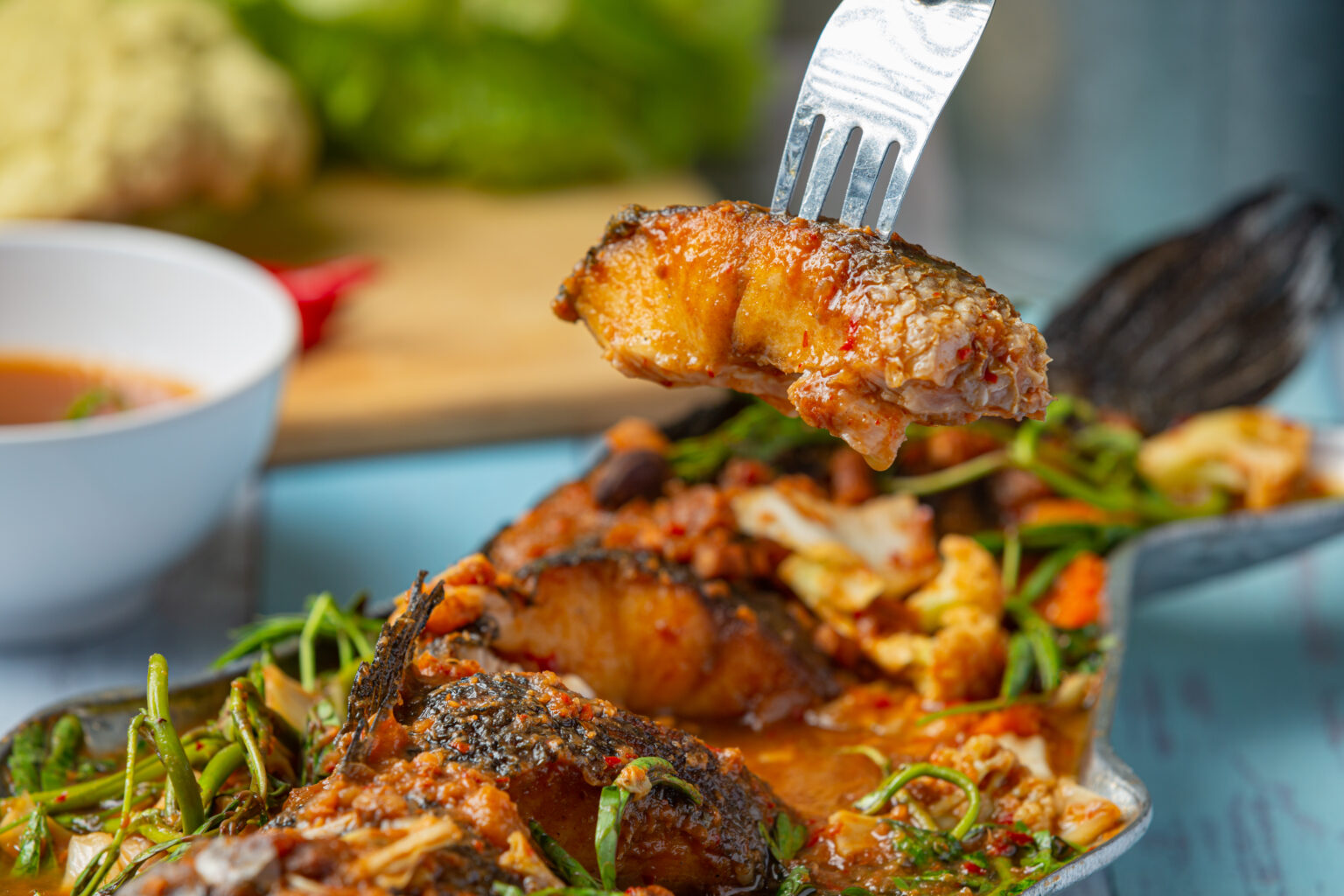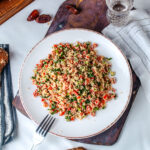South Africa is a land of diverse cultures and cuisines, and one of its most beloved culinary traditions is the Cape Malay cuisine. Known for its unique blend of flavors and aromatic spices, Cape Malay dishes are influenced by the Indonesian and Malaysian settlers who arrived in the Cape region during the 17th century. Among the array of delectable dishes, the Cape Malay Fish Curry stands out as a culinary gem, combining the freshness of fish with a fragrant medley of spices. In this article, we will delve into the tantalizing world of the Healthy South African Cape Malay Fish Curry, exploring its history, ingredients, and health benefits.
The Origins of Cape Malay Fish Curry:
The Cape Malay community, descendants of the Cape’s first Muslim settlers, developed a vibrant cuisine that fuses African, Asian, and European culinary traditions. The Cape Malay Fish Curry draws inspiration from the aromatic spices brought by the Indonesian and Malaysian slaves who were brought to South Africa by the Dutch East India Company.
Ingredients and Preparation:
To create a Healthy Cape Malay Fish Curry, you will need the following ingredients:
- 500 grams of firm white fish fillets (such as hake or kingklip)
- 2 tablespoons of vegetable oil
- 2 onions, finely chopped
- 2 garlic cloves, minced
- 1 tablespoon of ginger, grated
- 2 tablespoons of Cape Malay curry powder (a blend of spices including coriander, cumin, turmeric, cinnamon, and cardamom)
- 2 tomatoes, chopped
- 1 tablespoon of tomato paste
- 1 cup of vegetable or fish broth
- 1 cup of coconut milk (you can use the light version for a healthier option)
- 2 tablespoons of fresh cilantro, chopped
- Salt and pepper to taste
Now, let’s dive into the preparation:
- Heat the vegetable oil in a large pan over medium heat.
- Sauté the onions, garlic, and ginger until the onions are soft and translucent.
- Add the Cape Malay curry powder and cook for a minute, stirring constantly to release the flavours.
- Stir in the chopped tomatoes and tomato paste, cooking until the tomatoes start to break down.
- Pour in the vegetable or fish broth and bring the mixture to a simmer.
- Gently place the fish fillets into the pan, making sure they are submerged in the sauce. Cook for about 8-10 minutes, or until the fish is cooked through and flakes easily with a fork.
- Stir in the coconut milk and simmer for another 2-3 minutes to allow the flavors to meld together.
- Season with salt and pepper according to your taste.
- Garnish with fresh cilantro before serving.
Health Benefits of Cape Malay Fish Curry:
- Fish: The star ingredient, fish, is an excellent source of lean protein, omega-3 fatty acids, vitamins, and minerals. It promotes heart health, aids in weight management, and supports brain function.
- Cape Malay curry powder: The blend of spices used in Cape Malay curry powder offers an array of health benefits. Turmeric, a key ingredient, contains curcumin, a potent anti-inflammatory compound known for its antioxidant properties. Cumin aids digestion, while coriander is rich in dietary fibre and promotes healthy digestion.
- Tomatoes: The presence of tomatoes in the curry adds a tangy flavor and provides lycopene, a powerful antioxidant that may help reduce the risk of certain cancers and promote heart health.
- Coconut milk: Despite its creamy texture, coconut milk can be part of a healthy diet when consumed in moderation. It contains medium-chain triglycerides (MCTs), which are easily metabolised by the body for energy. Additionally, coconut milk provides essential vitamins and minerals.
The Healthy South African Cape Malay Fish Curry is a delightful fusion of flavours, combining the freshness of fish with aromatic spices and the creaminess of coconut milk. This delicious dish not only satisfies the taste buds but also offers a range of health benefits. So, why not embark on a culinary adventure and savour the rich cultural heritage of Cape Malay cuisine by preparing this tantalising dish? Enjoy the taste of South Africa in the comfort of your own home and embrace the diverse flavours that make Cape Malay cuisine so unique.








